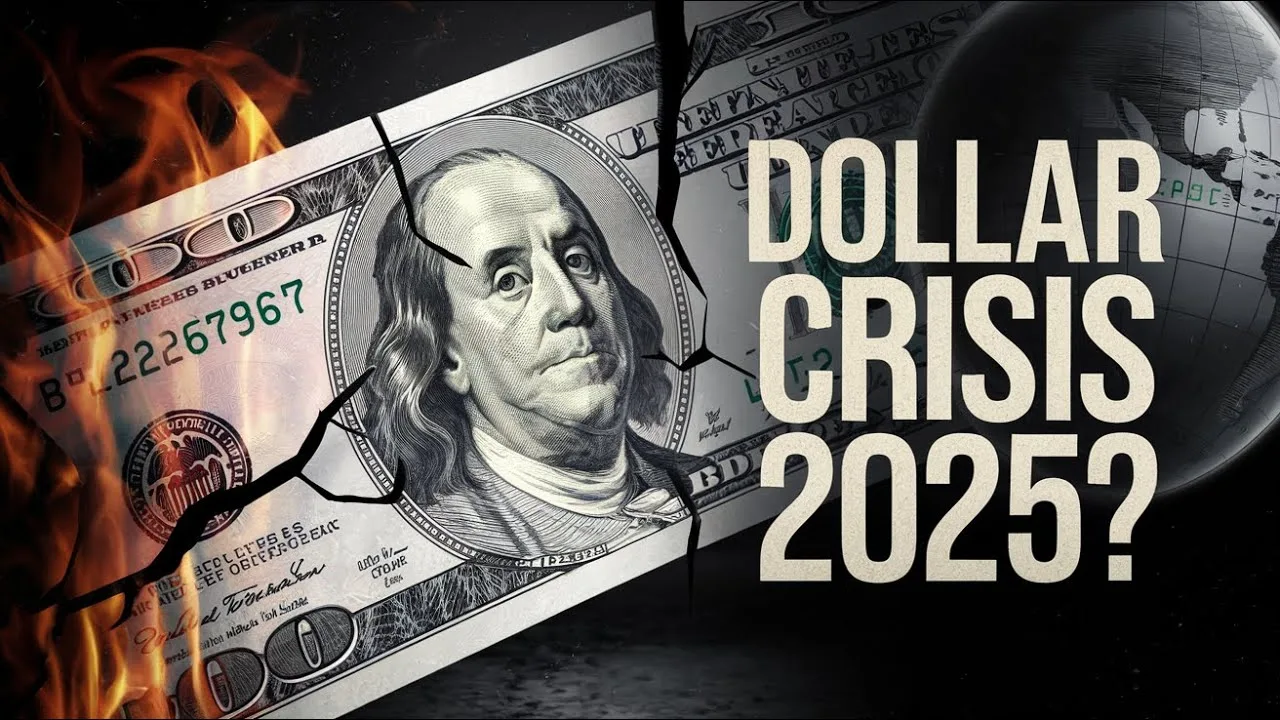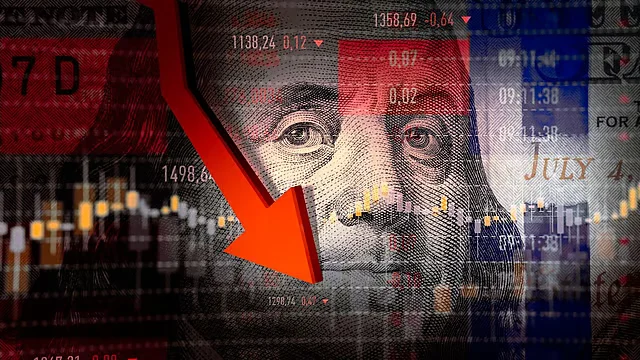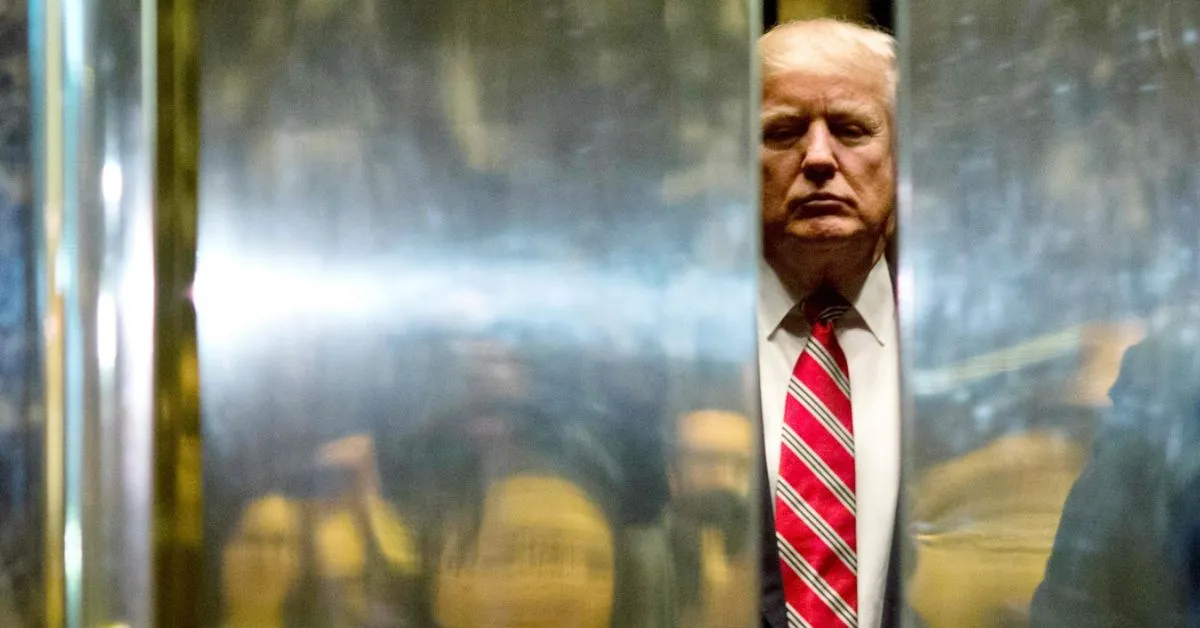As President Donald Trump stepped up his criticism of the US central bank chief, labeling him “a major loser” for failing to cut interest rates, US markets and the dollar fell once more.
Trump claimed in a social media post that Jerome Powell, the chair of the Federal Reserve, had been too slow to react to economic changes and urged Powell to lower interest rates “pre-emptively” to assist in stimulating the economy.

“There can be a SLOWING of the economy unless Mr. Too Late, a major loser, lowers interest rates, NOW,” he stated.
Trump has criticized Powell’s management of the US economy at a time when his own tariff plans have caused a sell-off in the stock market and sparked concerns about a potential recession. The president’s growing conflict with Powell, whom he appointed to head the Fed during his first term, has exacerbated the market turbulence.
Monday saw a 2.4% decline in the S&P 500, which measures 500 of the largest US corporations. Since the beginning of the year, it has lost about 12% of its worth. While the Nasdaq sank more than 2.5% and has lost over 18% since January, the Dow Jones Industrial Average slid 2.4% and has lost roughly 10% so far this year.
Trading on the majority of the Asia-Pacific region’s major stock indices, however, was muted on Tuesday. The Sydney-based ASX 200 closed about 0.3% lower, while Japan’s Nikkei 225 closed about 0.1% lower. The Hang Seng in Hong Kong ended the day up roughly 0.3%.
Germany’s Dax was down around 0.5%, France’s CAC was down 0.6%, and the UK’s FTSE 100 stock exchange was down about 0.05% in early European trade. Despite their reputation as safe investments during market turbulence, the US dollar and US government bonds have not been immune to the recent upheaval.
Monday saw the dollar index, which gauges the value of the dollar relative to a group of currencies, including the euro, drop to its lowest point since 2022. As investors sought more profits for keeping Treasuries, interest rates on US government paper likewise continued to rise on Tuesday.

As investors go for so-called “safe haven” assets, the price of gold broke the $3,500 (£2,613) per ounce barrier and reached a new all-time high.
In unstable economic times, the precious metal is thought to be a safer investment option.
- China cautions countries of ‘appeasing’ the US in trade agreements.
- Despite US tariffs, the IMF insists there is no global slump.
- Why the US bond markets have suddenly attracted so much attention
Trump has been critical of Powell from his first term in office, when he allegedly spoke of firing him as well. Following his electoral victory, he has pushed Powell to reduce borrowing costs.
Powell warned that Trump’s import levies were likely to weaken the economy and raise prices, and this latest critique comes after his warnings.
Trump publicly demanded Powell’s dismissal on social media last Thursday, saying, “Powell’s termination cannot come fast enough.”
Such a move would be unpopular—and legally difficult—given the tradition of independence at the bank.
Powell told reporters last year that he didn’t think the president had the legal right to terminate his employment.
Who Could Replace Jay Powell as Fed Chair? Powerful Contenders Trump Might Pick.
However, on Friday, when the U.S. stock market was closed for trading, one of Trump’s top economic advisers indicated that officials were researching the option.
“The world caught a cold when the United States sneezed.”
Trump’s recent comments come as top economic policymakers are convening in Washington for the spring meetings of the International Monetary Fund (IMF) and World Bank.
Before the 1970s, the Federal Reserve was occasionally subject to “significant” political pressure, according to Christopher Meissner, an economics professor at the University of California, Davis,, and a former IMF employee, who spoke on the BBC’s Today show.
But over the last 30 or 40 years, we’ve discovered that low inflation and financial stability depend on central banks being independent. And we must be on the lookout for what I believe to be a significant turnaround,” he continued.
The IMF said last week that “notable markdowns“ would be included in its most recent growth projections for individual nations, which it will release later. Mr. Meissner once said, ‘When the US sneezed, the rest of the world caught a cold’. I’ll be genuinely interested to see if that keeps up.
“However, I think people are expecting a pretty significant downturn in the US in the coming months… and that can’t be good for the rest of the world.”



